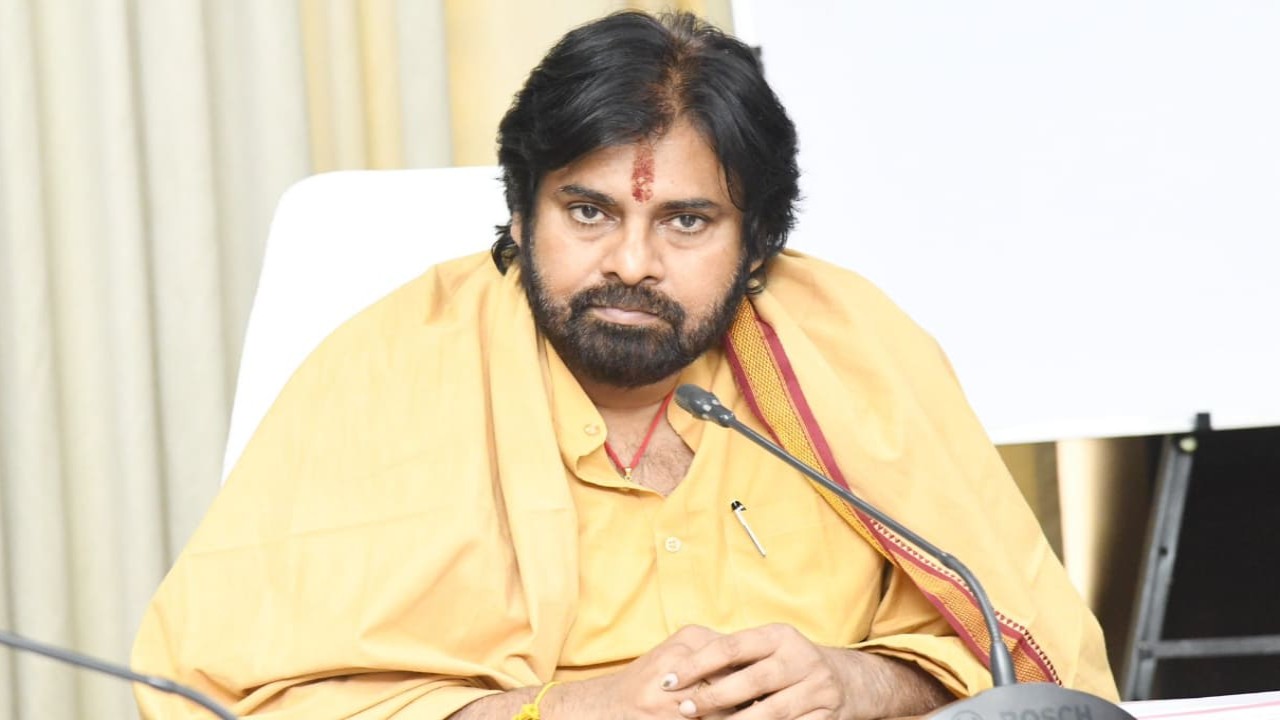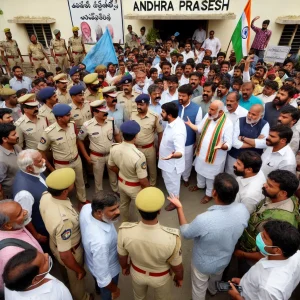
In recent weeks, Andhra Pradesh’s political arena has been ignited by a controversy surrounding Pawan Kalyan, the charismatic leader of the Jana Sena Party. Accusing the YSR Congress Party (YSRCP) of undermining Hindu beliefs by allegedly allowing animal products in the preparation of the sacred Tirupati laddu, Kalyan has positioned himself as a staunch defender of cultural values. But is this a genuine expression of concern, or a calculated strategy to capture attention in a crowded political landscape?

The Catalyst: Sacred Offerings and Religious Sentiments
Kalyan’s claims have resonated deeply with many Hindus, framing him as a champion of tradition. The Tirupati laddu, a revered offering to Lord Venkateswara, holds immense significance for devotees. By raising this issue, Kalyan not only sparked a fervent debate but also attracted the ire of prominent figures in the film industry, such as Karthik and Prakash Raj, who faced backlash for their comments. Karthik’s subsequent apology highlights the sensitivity of the issue and the potential for political repercussions in a region where religious sentiments run high.

The Political Landscape: Rallying the Base
Political analysts suggest that Kalyan’s statements are more than just emotional outbursts; they are strategic moves aimed at rallying support from a voter base that prioritizes religious identity. As Andhra Pradesh’s political landscape grows increasingly polarized, Kalyan’s focus on cultural issues may serve to galvanize the electorate, especially among those disillusioned with the current administration.

The Unfolding Narrative: Sanatan Dharma and National Attention
Kalyan’s declaration of himself as an “unapologetic Sanatanist” further complicates the narrative. By expressing respect for other religions while firmly anchoring himself in Hindu identity, he attempts to strike a delicate balance that could appeal to a broad spectrum of voters. His confrontations with leaders like Rahul Gandhi and Tamil Nadu’s Deputy CM Udhayanidhi Stalin have not only drawn regional attention but also thrust him onto the national stage, amplifying his visibility.

The Bigger Picture: Is There a BJP Connection?
Given the context, one can’t help but ponder the potential influence of the Bharatiya Janata Party (BJP) in this situation. With the BJP looking to strengthen its foothold in southern states, Kalyan’s actions could align with broader party strategies. Is he being nudged toward this controversy to serve a larger political agenda? While there is no direct evidence linking him to the BJP’s machinations, the alignment of his rhetoric with the party’s emphasis on Hindu nationalism raises questions.

Conclusion: Diversion or Smart Politics?
Whether this controversy is a diversion tactic or a shrewd political maneuver remains to be seen. Kalyan’s ability to tap into religious sentiments could provide him with the traction needed to elevate his party’s status in a competitive political landscape. As the situation unfolds, it will be crucial to observe how public opinion shifts and whether Kalyan successfully transforms this moment into sustained political capital.
In a region where identity politics often dictates electoral outcomes, Kalyan’s recent actions could be a defining moment in his political journey, reflecting both the complexities of Andhra Pradesh’s political dynamics and the broader trends shaping Indian politics today.




